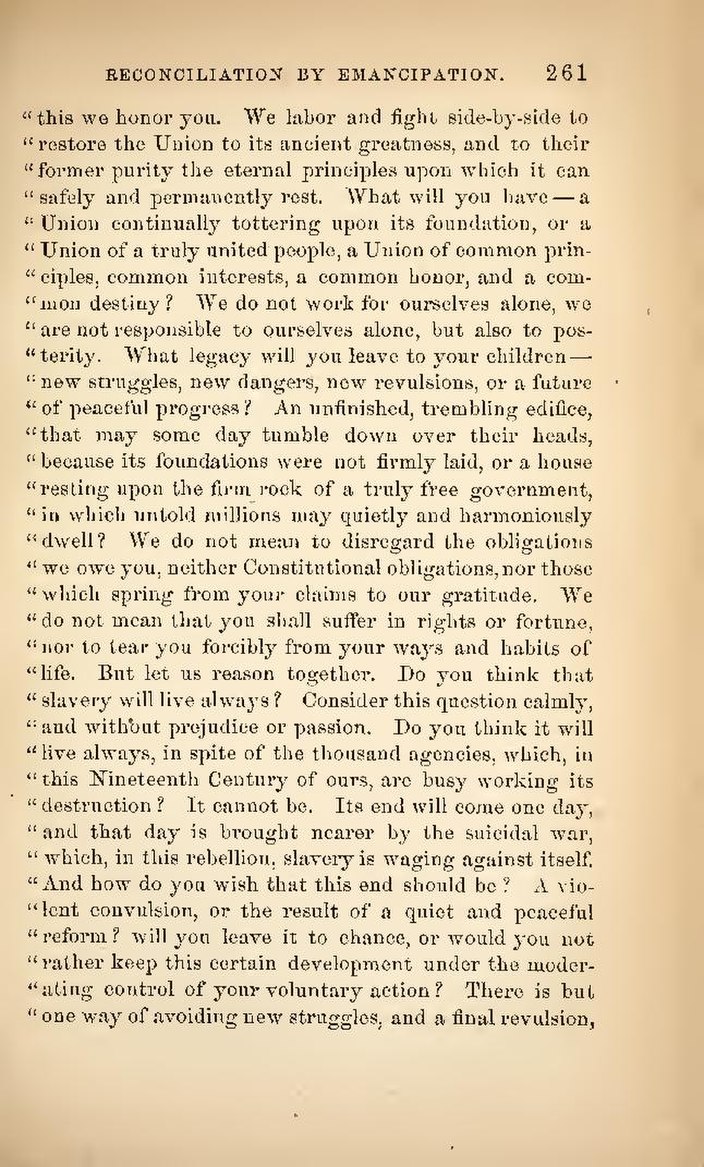this we honor you. We labor and fight side-by-side to restore the Union to its ancient greatness, and to their former purity the eternal principles upon which it can safely and permanently rest. What will you have—a Union continually tottering upon its foundation, or a Union of a truly united people, a Union of common principles, common interests, a common honor, and a common destiny? We do not work for ourselves alone, we are not responsible to ourselves alone, but also to posterity. What legacy will you leave to your children—new struggles, new dangers, new revulsions, or a future of peaceful progress? An unfinished, trembling edifice, that may some day tumble down over their heads, because its foundations were not firmly laid, or a house resting upon the firm rock of a truly free government, in which untold millions may quietly and harmoniously dwell? We do not mean to disregard the obligations we owe you, neither Constitutional obligations, nor those which spring from your claims to our gratitude. We do not mean that you shall suffer in rights or fortune, nor to tear you forcibly from your ways and habits of life. But let us reason together. Do you think that slavery will live always? Consider this question calmly, and without prejudice or passion. Do you think it will live always, in spite of the thousand agencies, which, in this Nineteenth Century of ours, are busy working its destruction? It cannot be. Its end will come one day, and that day is brought nearer by the suicidal war, which, in this rebellion, slavery is waging against itself. And how do you wish that this end should be? A violent convulsion, or the result of a quiet and peaceful reform? will you leave it to chance, or would you not rather keep this certain development under the moderating control of your voluntary action? There is but one way of avoiding new struggles, and a final revulsion,
